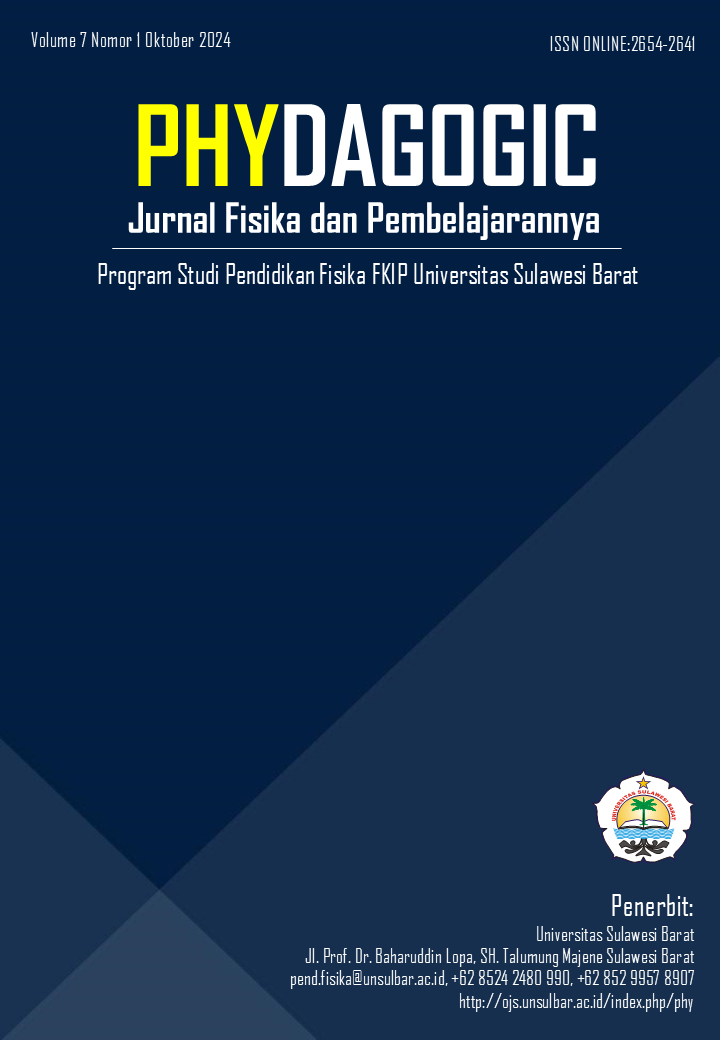Main Article Content
Abstract
Penelitian ini bertujuan untuk mengembangkan media pembelajaran pocket book digital. Subjek dalam penelitian ini adalah peserta didik kelas X MIPA SMA Negeri 1 Sendana yang berjumlah 34 orang. Metode penelitian yang digunakan adalah model Borg & Gall yang dibatasi tujuh tahap terdiri dari tahap potensi dan masalah, pengumpulan data, desain produk, validasi desain, revisi desain, uji coba produk. Kelayakan media pocket book digital yang dikembangkan mengacu pada 3 kriteria yaitu valid, praktis, dan efektif. Valid diperoleh dari hasil validasi oleh ketiga validator menunjukkan bahwa media pocket book digital memenuhi kriteria sangat valid dengan perolehan nilai rata-rata sebesar 90,45% pada media dan sebesar 90,59% untuk materi. Praktis diperoleh dari angket respon guru dan peserta didik dari hasil uji coba diperoleh nilai 88,67% untuk guru dan 85,09% untuk peserta didik hal ini menunjukkan bahwa pocket book digital memenuhi kriteria sangat praktis. Untuk efektif diperoleh dari tes hasil belajar peserta didik juga telah memenuhi kriteria sangat efektif dengan perolehan nilai rata-rata sebesar 82,35%. Sehingga dapat disimpulkan bahwa media pembelajaran pocket book digital yang dikembangkan telah memenuhi kriteria kelayakan.
Keywords
Article Details
Authors who publish in PHYDAGOGIC agree to the following terms: Authors retain copyright and grant the PHYDAGOGIC right of first publication with the work simultaneously licensed under a Creative Commons Attribution License (CC BY-NC 4.0). This license allows anyone to compose, improve, and make derivative works non-commercially, and while they must credit you and gain no commercial advantage, they are not required to license derivative works on the same terms as the original work. Authors are able to enter into separate, additional contractual arrangements for the non-exclusive distribution of the journal's published version of the work (e.g., post it to an institutional repository or publish it in a book), with an acknowledgment of its initial publication in PYDAGOGIC. Authors are permitted and encouraged to post their work online (e.g., in institutional repositories or on their website) prior to and during the submission process, as it can lead to productive exchanges, as well as earlier and greater citation of published work (See The Effect of Open Access).
